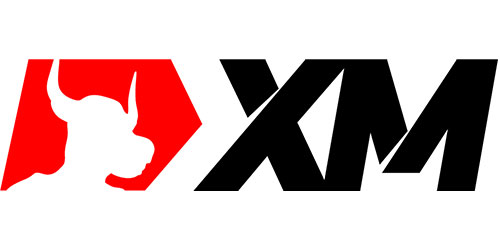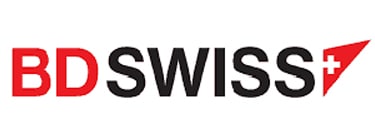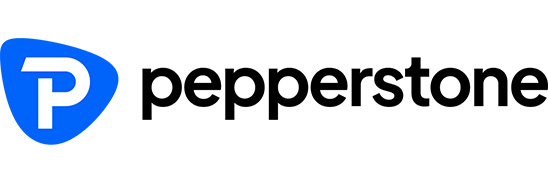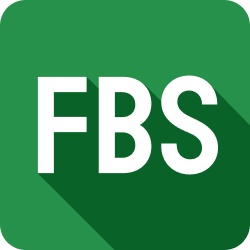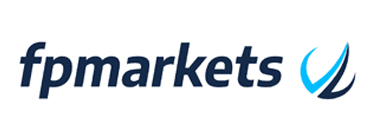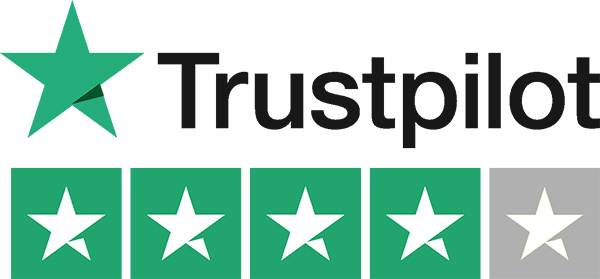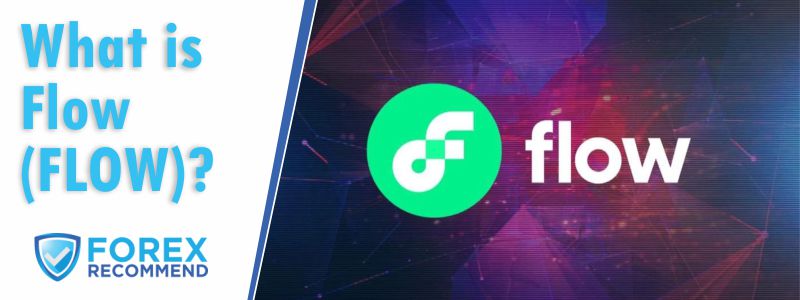
Flow is an extremely fast, highly decentralized, and developer-friendly blockchain platform that serves as the basis for a new generation of games, applications, and digital assets.
Top 10 Forex Brokers
Broker
Rating
Regulators
Min Deposit
Leverage
Website
Top 10 Forex Brokers
Broker
Rating
Min Deposit
Leverage
Flow is currently the only layer-one blockchain designed by a team that has a track record of continuously delivering excellent consumer blockchain experiences: CryptoKitties, Dapper Wallet, and NBA Top Shot are a few examples.
| Component | Flow (FLOW) |
| Technologies | Specialized Proofs of Confidential Knowledge (SPoCKs), collection nodes, consensus nodes, execution nodes, Cadence |
| Market Capitalization | $2.4 Billion+ |
| Open-Source | Yes |
| Consensus Mechanism | Specialized Proofs of Confidential Knowledge (SPoCKs) |
| Smart Contracts | Yes |
| Founders/Authors | Dapper Labs |
| Launch Date | 2020 |
| Circulating Supply of Coins | 316,835,587 FLOW |
| Maximum Coin Supply | Non |
| Mining-based Coin? | No |
| Is Flow a Stablecoin? | No |
| Does Flow have a burn rate? | No |
| Does Flow have a Whitepaper? | Yes, the technical papers can be viewed here |
Evolution and Development of Flow
Flow is a product of Dapper Labs, the firm that created the blockchain game CryptoKitties.
When CryptoKitties, one of the first non-fungible token (NFT) projects, ground the Ethereum blockchain to a standstill in late 2017 owing to massive congestion, developer Dapper Labs saw first-hand that current-generation blockchains were not designed to manage such demand.
With the rising popularity of NFTs—provably unique tokens that may be connected to digital content—something needed to be done.
Rather than just finding a new home for its decentralized application (DApp) or waiting for Ethereum scaling solutions to emerge, Dapper chose to create a blockchain on which it and other developers could depend.
Therefore, Flow was created, a blockchain designed specifically to enable NFT artefacts and large-scale crypto games. The flow was developed as a framework to accommodate blockchain-based gaming projects as well as digital assets, with its development led by its founders, namely Roham Gharegozlou, Dieter Shirley, and Mikhael Naayem.
Previously known as Axiom Zen, Dapper Labs launched Flow in 2019 with the announcement of an $11 million investment round headed by investor powerhouse A16z. Dapper Labs just closed the second round of investment spearheaded by NBA players Andre Iguodala and Spencer Dinwiddie. The funds will be used to build blockchain-based games on Flow.
What makes Flow unique?
In a typical blockchain, each node keeps the whole state (account balances, smart contract code, and so on) and is responsible for processing each transaction in the chain.
Flow's pipelined design divides the tasks traditionally performed by a single node into five distinct node types, decreasing unnecessary work and increasing efficiency. To facilitate this approach, the Flow team created a new cryptographic method called Specialized Proofs of Confidential Knowledge (SPoCKs) that addresses the Verifier's Dilemma.
Flow reconsiders several additional design decisions to increase developer and user usability, including upgradeable smart contracts and human-readable security.
Flow is a blockchain that is built for extended scalability without the need for sharding methods, enabling rapid and low-cost transactions that are ideal for decentralized applications such as NFT markets and crypto-infused video games.
The protocol is secured using a variation of VMware Research's HotStuff Proof of Stake consensus method. For further information, see the How Flow Works section of our Primer. Therefore, all smart contracts share a single common state, guaranteeing that each transaction meets all ACID (Atomicity, Consistency, Isolation, and Durability) requirements.
This strategy enables developers to build on top of one another’s code securely and quickly, rapidly developing new products and services. This is referred to as “composability.”
Composability, like open-source software, enables developers to innovate more quickly, eventually resulting in more customer choice.
What are the main uses for Flow?
Apps built on Flow may give consumers new features and advantages. Games that compensate players for adding value and provide assets and identities that users may take across endless open environments are examples of Flow-powered experiences.
To join the network, validators must stake a specified quantity of FLOW tokens. However, unlike other blockchains, Flow divides validation duties into four categories: consensus, verification, execution, and collection.
Dapper claims that by dividing up the workload, making the Flow blockchain is more efficient than competitors.
It is an alternative to sharding, which distributes a blockchain's storage and compute demands over many nodes. Not using sharding maintains transactions atomic, consistent, isolated, and durable (ACID) and helps developers to build on each other's work, according to the dev team.
Flow also supports upgradeable smart contracts, allowing for them to be tested, improved, and repaired before becoming finished and immutable.
What is the future potential for Flow?
NFT collectables exploded in popularity in late 2020 and early 2023, and Flow was one of the primary benefactors. One of the most popular DApps during this time was NBA Top Shot, and in addition to this, Flow reported significant increases in developer requests early in 2023.
Commercial interest follows developer interest; in June 2023, NFT marketplace Rarible stated that it would extend its service to Flow using the proceeds of its $14.2 million Series A investment round.
Additionally, Flow is expanding its infrastructure. Dapper Labs released FUSD in June 2023, describing it as the first US dollar-backed stablecoin on Flow. FUSD is a stablecoin that is backed 1:1 by US dollars deposited with financial infrastructure provider Prime Trust.
That is part of Dapper Labs' broader vision for Flow, which includes the possibility of using it for more complicated gaming experiences other than NFTs.
This is something that Dapper refers to as the “blockchain for open worlds.” On the one hand, “open” suggests decentralization—but it may only be a matter of time before it also becomes a venue for large-scale crypto gaming.
Price analysis on Flow
The flow was initially launched in 2020, and price analysis traces back to early 2023, with the most recent performance as follows:
| August | September | October | November | December to date | |
| FLOW Price High | $27.02 | $27.57 | $20.92 | $15.49 | $12.68 |
| FLOW Price Low | $20.71 | $15.12 | $11.95 | $11.65 | $7.62 |
| Market Cap | $1.57B | $1.53B | $1.35B | $4.83B | $3.99B |
Price prediction on Flow
According to a detailed technical analysis of historical FLOW price data, the price of Flow is anticipated to reach a minimum of $11.41 in 2023.
The FLOW price has a maximum trading range of $13.36 to $11.73, with an average trading price of $11.73. Flow's price is expected to reach a minimum of $16.08 in 2023. Throughout 2023, the Flow price might reach a high of $19.45 with an average of $16.55.
Where can you buy Flow?
FLOW tokens can be bought, sold, and exchanged on the following exchanges at competitive rates:
- Uphold
- Binance
1. Uphold: Sustain is Uphold, a leading exchange in the United States, is an established and incredibly creative trading platform that should be able to accommodate your trading demands across a variety of cryptocurrencies, including Flow (FLOW).
Apart from the trading platform's simplicity of use and unique features, what distinguishes the firm is its industry repute.
They provide a highly intuitive trading experience on both desktop and mobile devices. The trading view is customizable with the assets you trade most often, and it has an intuitive interface and a contemporary style on both desktop and mobile.
It is a highly popular and ideal alternative for first-time crypto investors.
| PROS | CONS |
| There is a low minimum deposit | Spreads on assets with lower trading volumes can be wide |
| There is commission-free trading on assets offered | The asset selection is limited |
| There is direct cross-asset trading offered on the platform | |
| There is a highly customizable and innovative trading platform that caters for different investment objectives | |
| Users can use up to 50 limit orders simultaneously on the platform | |
| The exchange has a high trust score and caters for beginners and institutional investors |
2. Binance: Binance is one of the biggest and most well-known crypto markets in the world, with a market capitalization of over $1 billion.
The advantages of acquiring Flow (FLOW) on this exchange include reduced exchange costs than on other exchanges, as well as improved liquidity, which allows people to buy and sell rapidly to take advantage of market-moving news as soon as it occurs.
| PROS | CONS |
| Binance is a large, well-established, and trusted exchange | There is a high minimum deposit |
| There is a massive selection of alternative coins offered | The trading platform is not suited to novice traders |
| The exchange has a good reputation and a high trust score | |
| The exchange welcomes crypto and fiat deposits |
You can buy Flow safely from these cryptocurrency platforms.
What is Flow’s largest Competitor?
Ethereum is the largest competitor of Flow.
Ethereum, the second-largest blockchain network, is a decentralized as well as an open-source platform with smart contract capabilities. Ethereum's designers required a blockchain network that could serve several use cases.
The programming language used by Ethereum is an intriguing feature that distinguishes it from Flow blockchain. The Ethereum smart contract platform uses Solidity, an object-oriented advanced programming language.
Solidity is a lot like JavaScript, Python, and C++. It is also optimized for the Ethereum Virtual Machine. Bitcoin, the first successful blockchain network, was merely a peer-to-peer financial exchange.
Rather than only cryptocurrencies, Ethereum aids in the digitalization and efficient transportation of everything valuable. Ethereum's programming language is Solidity.
Ethereum is now the favoured platform for decentralized apps and NFTs. Flow blockchain, the second contender in the Flow blockchain versus Ethereum battle, debuted in 2020. Dapper Labs, creators of Flow blockchain, also created the renowned CryptoKitties NFTs.
However, the NFT-based game clogged Ethereum's network. Dapper Labs aimed to build a blockchain infrastructure that could handle billions of users in decentralized applications and scale up to satisfy consumer needs.
Flow blockchain is a decentralized blockchain-based platform that can support whole application ecosystems, notably NFTs. The main advantage of Flow blockchain over Ethereum is its multi-node design. The new blockchain platform may enable the development of secure and scalable applications for billions of users.
The network's reserve currency is FLOW which can be used to facilitate governance, transaction fees, and staking. Like Ethereum, Flow blockchain inventors created a new language called Cadence. The Flow blockchain's programming language also gives it an edge over Ethereum.
Cadence is a resource-oriented programming language with novel smart contract capabilities.
Cadence has built-in pre and post conditions for transactions and functions, capability-based security, and a powerful static type of system. Interestingly, prominent decentralized apps like the NBA Top Shot already use Flow.
What can Flow smart contracts do?
With upgradeable smart contracts, the need to comprehend ‘what is Flow blockchain' becomes evident. The main benefit of smart contracts is that consumers can trust the programming.
Flow provides ‘beta state' smart contract deployment on the mainnet, allowing authors to make incremental code improvements. Users can quickly detect incomplete code and wait for it to be completed before trusting it.
Authors might relinquish ownership of the contract if they are confident in their code's safety. So it becomes perfectly immutable.
Upgradeable smart contracts on Flow blockchain provide the correct balance of user demands. It aids users in determining the code type. Users could tell if an app or smart contract is trustworthy, while developers may tweak code for a limited time after release.
Is Flow a Good Investment?
Yes, Flow is a good investment.
Flow is designed for the collectible and interactive crypto encounters that are rapidly gaining popularity and will reach a far bigger audience in the years to come.
NBA Top Shot has already shown the potential for a blockchain-based collectables experience to make significant revenue and get widespread media attention. That is only one of the experiences developed on top of Flow; there will be many more.
Is Flow a viable Alternative Coin?
Yes, Flow is one of the most successful altcoins in the cryptocurrency market based on these metrics:
- Hacking – The flow ecosystem and blockchain has never fallen prey to a cyberattack
- Security – The blockchain uses some of the most robust technologies to ensure security.
- Technology – Flow employs innovative technology, including Specialized Proofs of Confidential Knowledge (SPoCKs), collection nodes, consensus nodes, execution nodes, Cadence, and more
- Price Stability – The price on FLOW tokens is stable when compared to more volatile counterparts such as Bitcoin.
- Potential Investment – Because it is unique, Flow is attracting the attention of many investors.
Any cryptocurrency that isn't Bitcoin is referred to as an altcoin.
What are the differences between Flow and Bitcoin?
Bitcoin was established to allow individuals to transfer money online. The digital currency was meant to be a non-centralized payment system that could be used like existing currencies.
Bitcoin uses the SHA-256 algorithm for cryptography. All transactions are openly broadcast on the network, and miners create blocks by performing a cryptographic formula that is difficult to construct but simple to verify.
Flow is a popular and innovative decentralized blockchain platform that can support the establishment of whole application ecosystems, particularly NFTs. The network's reserve currency is FLOW that serves as a unique token for governance, transaction fees, and staking.
| Bitcoin | Flow | |
| Price change 20/21 | +400% | -6% |
| Market Cap | $800 Billion+ | $2.4 Billion+ |
| Past Hacks | None | None |
| Popularity | Very High | Medium |
| Altcoin Rank | #1 – Original Crypto | #54 |
What are the differences between Flow and Ethereum?
Ethereum uses the Solidity programming language that can be used when smart contracts are created. Now, Ethereum is the favoured platform for a variety of decentralized applications as well as non-fungible tokens (NFT).
Flow also offers multi-node architecture that Ethereum does not have. In addition, Flow is more scalable, and instead of depending on sharding, Flow relies on its unique framework to ensure vertical scalability.
The transaction fees charged by Ethereum are highly dependent on the intricacy of the smart contract and the amount of traffic on the network. Users must pay gas costs in Ether, which is the cryptocurrency created by the Ethereum platform.
Flow has two distinct fees that are charged for transactions, namely account creation and transaction fees, which are both much lower than the GAS fees on Ethereum.
| Ethereum | Flow | |
| Price change 20/21 | +880% | -6% |
| Market Cap | $460 Billion+ | $2.4 Billion+ |
| Past Hacks | None | None |
| Popularity | Very High | Medium |
| Altcoin Rank | #2 | #54 |
What are the differences between Flow and NEO?
NEO's emphasis on regulatory compliance sets it apart from other mainstream blockchain platforms. NEO's “digital identity,” which includes digitized assets and smart contracts, stands apart from other blockchain systems like Ethereum because of its third major element.
Blockchains like Flow are perfect for crypto-based games and NFT collectables because of their capacity to scale and accelerate without the need for sharding. Flow's multi-node, multi-role design offers significant gains in performance and throughput.
| NEO | Flow | |
| Price change 20/21 | +160% | -6% |
| Market Cap | $1.70 Billion+ | $2.4 Billion+ |
| Past Hacks | None | None |
| Popularity | Medium | Medium |
| Altcoin Rank | #69 | #54 |
What are the differences between Flow and NFTs?
Nonfungible tokens (NFTs) are digital assets that each have a unique value, with no two NFTs holding the same characteristics or value as another. Flow, on the other hand, is fungible, which means that one FLOW has the same value and characteristics as another FLOW.
What are the differences between Flow and Solana?
For decentralized programs (DApps), games, and the crypto assets they operate on, Flow is a fast, decentralized, developer-friendly blockchain. Its scalability and speed make it perfect for crypto-based gaming and NFT collectables.
Solana is a powerful and popular programmable blockchain network that works similarly to Ethereum and may be used for different decentralized financial processes.
This multi-DeFi solution allows users to transfer non-fungible tokens and digital assets as well as fungible money. The Solana blockchain processes transactions at lightning speed, increasing trading liquidity.
The SOL coins may be used to trade or stake cryptocurrencies on prominent exchanges. Solana has devised novel methods such as the “Proof of History” mechanism.
| Solana | Flow | |
| Price change 20/21 | +9,300% | -6% |
| Market Cap | $54 Billion+ | $2.4 Billion+ |
| Past Hacks | None | None |
| Popularity | Very High | Medium |
| Altcoin Rank | #5 | #54 |
What are the differences between Flow and Cardano?
The Cardano blockchain supports ADA transactions as well as smart contracts and apps. It competes with Ethereum, Solana, and other blockchains like Flow that aspire to facilitate DApps and Smart Contracts.
Cardano is more popular and leverages a distinct set of technical breakthroughs than Flow. Cardano is also the first scholarly peer-reviewed crypto project.
| Cardano | Flow | |
| Price change 20/21 | +2,100% | -6% |
| Market Cap | $42 Billion+ | $2.4 Billion+ |
| Past Hacks | None | None |
| Popularity | Very High | Medium |
| Altcoin Rank | #7 | #54 |
Which wallets support FLOW?
The following digital wallets are best suited for storing, sending, staking, and receiving FLOW tokens:
- Ledger – Flow is compatible with all Ledger hardware wallets. There are some of the best, most affordable physical devices that ensure that the user's crypto assets are kept safe.
- Native FLOW wallet allows users to send, receive, and store tokens.
- Dapper Wallet is an innovative and popular smart contract wallet that supports FLOW tokens. It is a peer-reviewed and commercially audited digital wallet.
Best Bitcoin Wallets are the same as Flow wallets.
What is staking?
Staking is an activity that is native to blockchain projects that use the Proof of Stake consensus mechanism to secure the blockchain and verify transactions.
To participate in staking, users must dedicate a certain token minimum which is locked/staked for a certain period, allowing them to participate in consensus. Participation in securing the network through staking provides participants with certain incentives and rewards.
How can users stake FLOW tokens?
Flow is a worldwide network of computers that collaborate to protect and preserve the integrity of its users' data.
This worldwide network is comprised of several individual nodes, which are comprised of human-run software programs. Each node in the network has a tiny portion of the responsibility for maintaining the network's stability and ensuring that other nodes do the same.
This shared duty is sometimes referred to as decentralization since no one central node is fully accountable for the network's security and integrity, as well as the data contained inside.
Node operators are the individuals who manage nodes. A node operator must first acquire tokens to join their software programs to the network as nodes.
Each node operator is required to temporarily contribute a significant portion of their tokens to the network as a guarantee that they would not change their node to violate the network's regulations, such as stealing cash from users' accounts.
If a node ever violates the network's regulations, a portion of the node operator's staked tokens will be taken away as punishment in a completely automated procedure. Each node is aware of the network's rules and automatically monitors and reports on other nodes that violate them.
Meanwhile, the network rewards node operators regularly using a combination of transaction fees and freshly minted tokens, providing their node does not violate any regulations.
If a node operator violates the rules, they forfeit the staked tokens. They are rewarded with more tokens if they run their node with integrity. This is the fundamental motivation for a decentralized proof-of-stake network such as Flow to exist.
A node operator establishes a node by executing a transaction with information about their node and the FLOW to stake. They will be welcomed into the network if they satisfy the prerequisites for running a node!
Once a node is staked and working correctly, it will get periodic reward payments if it remains online and actively engages in the protocol without incurring violations that could lead to tokens being ‘slashed.’
Once registered, nodes are expected to operate for the duration indicated by the protocol. This historical period is referred to as an Epoch.
Table of Contents




